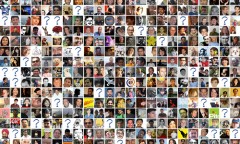By Steve Pak, | March 25, 2016
Social Network Icons
Social media sites can cause a cycle of depression due to heavy use based on a new study. Researchers' findings showed that the more time young adults spend on social networks the more likely they are to become depressed. Social platforms in the study included Facebook, Twitter, Google Plus, Instagram, Reddit, Pinterest, and YouTube.
Like Us on Facebook
The study was conducted by the University of Pittsburgh's Center for Research on Media and led by Dr. Brian Primack.
Study participants were between the ages of 19 and 32. It included about 1,800 United States young adults. Those who checked social media the most often during the week were 2.7 times more likely to suffer from depression than those who used social networks less frequently.
The volunteers averaged 61 minutes of social media use every day and visited their social accounts 30 times per week. Meanwhile, one-quarter of them had signs of depression.
Primack explained that because it was a cross-sectional study the results do not show a social trend, according to The Independent. He pointed out that people who are already depressed might use social medial more often because they do not have the energy or interest in having as many real-life social relationships.
The research leader also said that there are reasons why people who use social media more often are more depressed. One is "Facebook depression." People who often use social media might think that they do not match the value of posts and photos that other Facebook users add to their profiles.
Primack explains that this could result in a never-ending cycle. People who are depressed try to get support on social networks but their depression gets worse after they take that step.
In related news a study published in January showed that social media can also cause problems in sleep cycles, according to Tech Crunch. It was also conducted by the University of Pittsburgh's School of Medicine.
The study showed that the participants spent 61 hours on social networks per week, and almost one-third of them had high levels of sleep disturbance. Findings revealed that people who had problems sleeping used social media more, which resulted in more problems getting a good night's sleep.
Here's how social media changes people's brains:
-
Use of Coronavirus Pandemic Drones Raises Privacy Concerns: Drones Spread Fear, Local Officials Say

-
Coronavirus Hampers The Delivery Of Lockheed Martin F-35 Stealth Fighters For 2020

-
Instagram Speeds Up Plans to Add Account Memorialization Feature Due to COVID-19 Deaths

-
NASA: Perseverance Plans to Bring 'Mars Rock' to Earth in 2031

-
600 Dead And 3,000 In The Hospital as Iranians Believed Drinking High-Concentrations of Alcohol Can Cure The Coronavirus

-
600 Dead And 3,000 In The Hospital as Iranians Believed Drinking High-Concentrations of Alcohol Can Cure The Coronavirus

-
COVID-19: Doctors, Nurses Use Virtual Reality to Learn New Skills in Treating Coronavirus Patients











